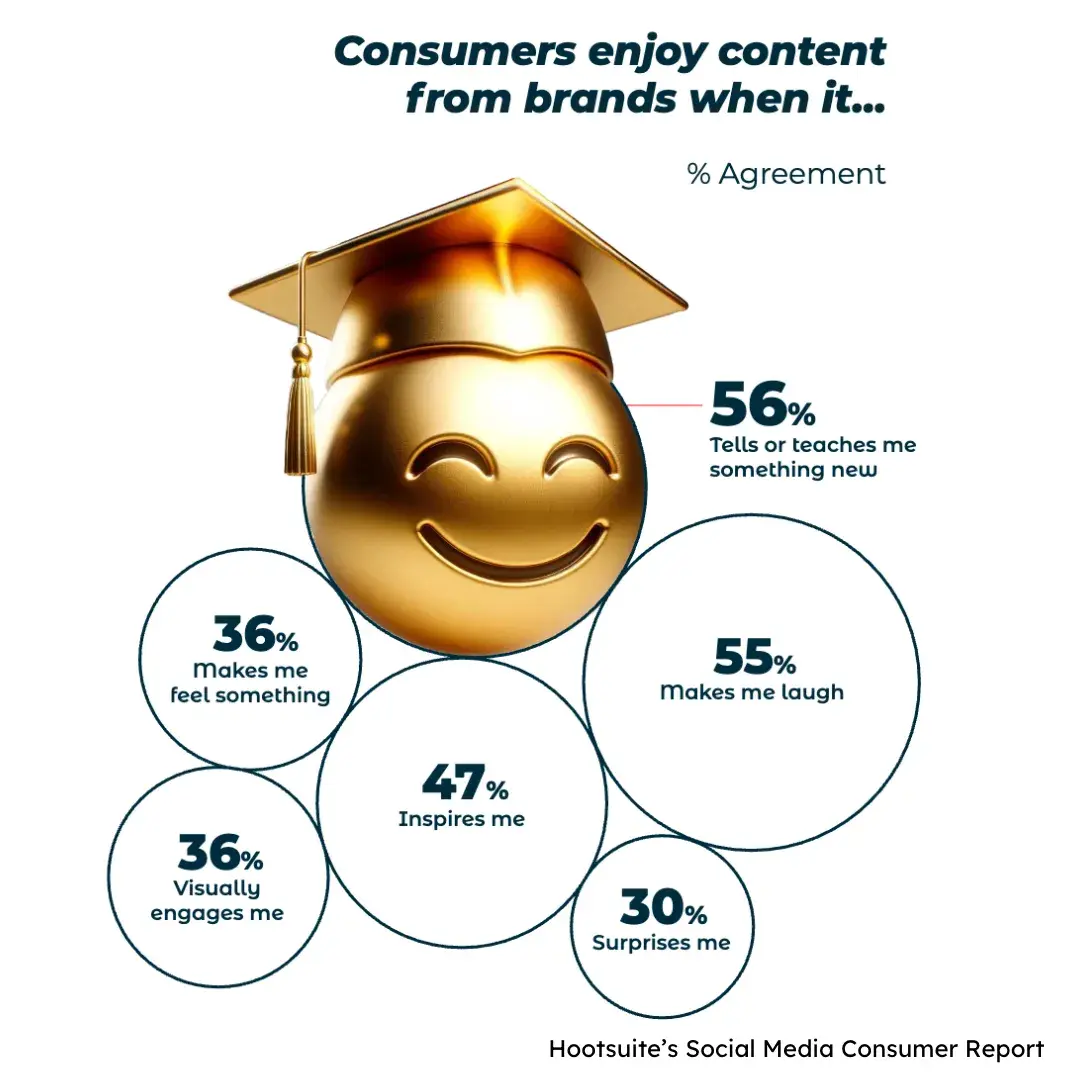It often surprises people to learn just how unfunny making comedy can be. I worked with this week’s master of marketing some years ago out of The Onion’s HQ, so we’ve both been behind the scenes. A business is still a business, and marketing is still marketing.
Which isn’t to say it can’t be a helluva lot of fun.
I talked to , the creative director of brand at , where he describes his job as “leading a team of creatives to ruffle B2B marketing feathers for an equally feather-ruffling product.”
Case in point: His team recently produced a (mostly) SFW commercial that promises to “uncover social media insights” by repositioning a local green space as a nudist park.
Lesson 1: Comedy begins with empathy.
Since I last saw him, Ali’s had stints as the brand creative director for Potbelly’s and now Hootsuite. At both places, he’s brought his sometimes wry, sometimes absurdist humor into play.
I ask him to spill his secrets. What can I tell our readers that will make them funnier marketers?
His answer is no joke: If you want to successfully use humor in marketing, start by building trust and practicing empathy. He gives me this example:
Say you’ve got an idea for a hilarious new ad campaign, but you keep hearing that the stakeholders “don’t want to have fun.” (Cyndi Lauper weeps.)
Ali asks, “Is it that, or is it that they’re kind of worried that they’re going to spend money on this,” and if it flops, they’ll be reprimanded — or worse?
“That’s a very human emotion. So if we go into these conversations with, ‘Listen, I hear this might be a little outside of your norm,’” you’re immediately showing empathy, even if the person hasn’t voiced their fears.
Lesson 2: Data can make you funnier.
“Data helps inform and persuade and build that trust,” Ali says. He’s “definitely gotten a CEO who’s shifted in their chair a little bit” during a pitch, so he knows something about persuading the risk-averse.
When you’re asking stakeholders to work outside their comfort zones, you “oftentimes need the data to show to them that this is actually what surveyed people want.” Ali points me to : 55% of the 6000+ respondents enjoy brand content that “makes me laugh.”

A practical tip ties this all together: Ali will sometimes shoot a funny version and a straighter version of an ad, and test both. Building trust means showing “that you’re able to communicate the needs of the business in a way your audience cares about.”
Lesson 3: Use the peanut butter method.
“Everyone hates advertising, but they're okay being sold to,” Ali says.
It’s like using peanut butter to sneak your dog a pill. “If people are willing to be sold to, pitch the pill in something yummy. People will watch it.” (Let’s ignore for a moment that we are all the hapless dogs in this analogy.)
“I often think that the best ads are ones we can't measure, because they're shared in a group chat with friends.” I sincerely hope nobody is working on a pixel that can track my group chats, but it’s true that if somebody shares an ad, it’s because it’s both funny and emotionally resonant.
Maybe you see a funny ad for diapers. Your sister’s just had a baby, and you share the ad in the family group chat. “All of a sudden, there’s a bond formed through this piece of advertising.” And it goes beyond “here, buy this thing,” Ali says.
Without that (hopefully imaginary) group-chat tracking pixel, traditional marketing metrics won’t necessarily be of much use.
“But what did you solve for the customer?” Ali asks. “Those are the real results.” The more we can focus on that, “the better we’ll be as marketers.”
Lingering Questions
Each person we interview gives us a question for our next master of marketing. Last week, Wistia CEO Chris Savage asked:
What’s something you’re doing that’s working so well, you’re afraid to tell others about it?
Ali: I have to say that the creative brand team at Hootsuite is working so well that it‘s like a secret. Just to watch the collaboration and the teamwork that occurs here — it’s something I’ve never experienced before.
And Ali’s question for our next master in marketing:
What advice would you give yourself when you were first starting out?
Come back next Monday for the answer!



![The Future Consumer: State of Consumer Trends in 2025 [Data from 700+ Consumers]](https://www.hubspot.com/hubfs/consumer%20trends%202023-1.png)
![The Top Marketing Trends of 2025 & How They've Changed Since 2024 [Data from 1400+ Global Marketers]](https://www.hubspot.com/hubfs/Untitled%20design%20%2868%29.jpg)

![Top Shopping Trends of 2024 & How They've Changed [New Data]](https://www.hubspot.com/hubfs/shopping-trends_3.webp)


![How Each Generation Shops in 2024 [New Data from Our State of Consumer Trends Report]](https://www.hubspot.com/hubfs/how-each-generation-shops-1-20240801-5345961-1.webp)

